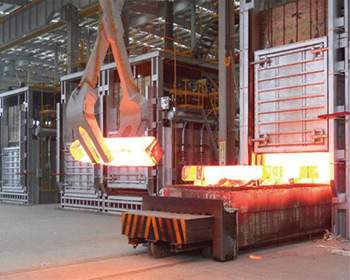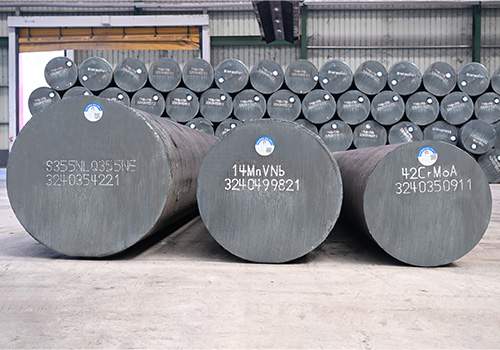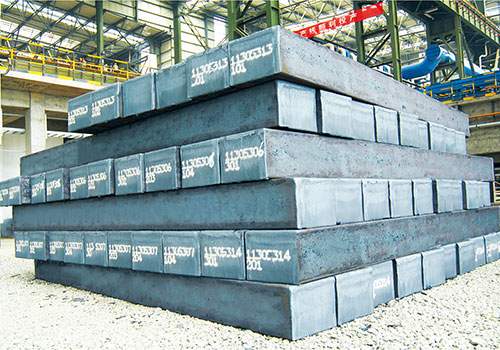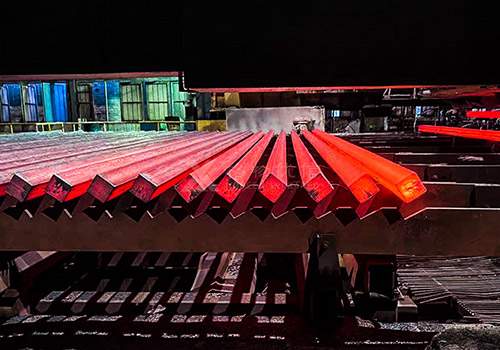
Q235 Steel Equivalent: What You Need to Know
Table of Contents
Introduction

In the world of steel, selecting the right material is essential for ensuring the success of your project, especially in construction and manufacturing industries. One of the most commonly used materials is Q235 steel, a grade of carbon structural steel that is often chosen for its strength, versatility, and cost-effectiveness. However, understanding the equivalent grades of Q235 steel in international standards is equally important. This article explores Q235 steel equivalent grades in different global standards, the properties of Q235 steel, and how to select the right steel for your project.
What Is Q235 Steel?
Q235 steel is a grade of carbon structural steel commonly used in the construction industry. The designation “Q” refers to the yield strength (in MPa), while “235” represents the minimum yield strength of 235 MPa. This steel grade is known for its good weldability and reasonable mechanical properties, which makes it an excellent choice for various construction and industrial applications.
The chemical composition of Q235 steel primarily includes carbon, manganese, silicon, and trace amounts of sulfur and phosphorus. This combination of elements provides a good balance of strength, flexibility, and cost-efficiency, making Q235 steel a go-to choice in the construction sector.
Key Properties of Q235 Steel
Chemical Composition of Q235 Steel
The key elements found in Q235 steel contribute to its mechanical properties. Here is an overview of the typical chemical composition:
| Element | Composition (%) |
|---|---|
| Carbon (C) | ≤ 0.22 |
| Manganese (Mn) | 0.30 – 0.70 |
| Silicon (Si) | ≤ 0.30 |
| Sulfur (S) | ≤ 0.035 |
| Phosphorus (P) | ≤ 0.035 |
These elements provide Q235 steel with good workability, weldability, and toughness, making it suitable for various structural applications.
Mechanical Properties
Q235 steel has good mechanical properties, with a yield strength of 235 MPa and tensile strength ranging from 375 MPa to 500 MPa. The elongation of Q235 steel is at least 20%, ensuring flexibility and durability in construction.
Q235 Steel Equivalent Grades in Other Standards


Q235 Steel Equivalent in ASTM Standards
In the United States, Q235 steel equivalent is commonly considered to be ASTM A36 steel. ASTM A36 is another carbon steel grade with similar mechanical properties, making it suitable for structural applications. While both materials have comparable yield strength, the main difference lies in their chemical composition. A36 steel has slightly lower manganese content than Q235 steel, but both are often used interchangeably in various construction projects.
Q235 Steel Equivalent in European Standards
In Europe, Q235 steel equivalent is often considered to be S235JR, a grade of steel defined in the EN 10025-2 standard. Like Q235 steel, S235JR has a yield strength of around 235 MPa, making it a suitable material for construction, bridges, and general industrial applications. Both grades offer similar properties in terms of tensile strength and weldability.
Q235 Steel Equivalent in Japanese Standards
In Japan, Q235 steel equivalent is classified as JIS SS400, a carbon steel with mechanical properties similar to those of Q235. The main difference lies in the regional standards, but both SS400 and Q235 offer a good balance of strength and flexibility, making them suitable for general structural applications.
Q235 Steel Equivalent in ISO Standards
Under ISO 630, Q235 steel equivalent is considered a general-purpose structural steel with similar mechanical properties to those found in ASTM and European standards. ISO standards are widely used internationally, and Q235’s compatibility with these standards ensures that it is suitable for global projects.
Table: Comparison of Q235 Steel and Its Equivalents
| Standard | Equivalent Steel Grade | Yield Strength (MPa) | Tensile Strength (MPa) | Application Area |
|---|---|---|---|---|
| China (GB) | Q235 | 235 | 375 – 500 | General construction, welding |
| ASTM | A36 | 250 | 400 – 550 | Bridges, construction, general structural use |
| Europe (EN) | S235JR | 235 | 360 – 510 | Structural applications, construction |
| Japan (JIS) | SS400 | 245 | 400 – 510 | Construction, machinery, heavy equipment |
| ISO | 630 | 235 | 370 – 500 | General structural use worldwide |
This table clearly illustrates the similarities and differences between Q235 steel and its equivalents in other international standards, helping you make a well-informed decision based on your project requirements.
Benefits of Using Q235 Steel
Cost-Effectiveness
One of the primary reasons for choosing Q235 steel is its affordability. Compared to higher-grade steels, Q235 offers a good balance between price and performance, making it a popular choice in large-scale construction projects that require moderate strength but do not need the higher strength of specialty steels.
Versatility
Q235 steel is versatile and can be used in various structural applications such as building frames, bridges, and equipment. It is also suitable for welding, bolting, and riveting, making it adaptable to different construction techniques.
Availability
Q235 steel is widely available in multiple forms, including plates, angles, and beams. Its availability ensures it is easy to source and use in various regions across the globe, particularly where Chinese steel standards are adhered to.
Strength and Durability
While Q235 steel may not have the highest tensile strength compared to other high-strength alloys, it still offers reliable durability for a wide range of applications. It is suitable for structures and equipment exposed to moderate loads and stresses.
How to Choose the Right Steel Grade for Your Project

When selecting a steel grade for your project, it is important to consider several factors, including:
- Strength requirements: If your project demands higher tensile strength, you may want to consider higher-grade materials like Q345 or ASTM A992.
- Corrosion resistance: For projects exposed to harsh environments, you may need materials like stainless steel or alloy steels.
- Workability: Consider how easy the material is to work with, including welding and machining properties.
- Cost considerations: Balance your project’s budget with the material requirements. Q235 steel is a cost-effective option for many construction and structural needs.
For general-purpose applications that do not require extreme strength, Q235 steel offers a good balance of performance, cost, and availability.
Conclusion
Q235 steel equivalent grades, such as ASTM A36, S235JR, and SS400, offer flexibility and reliability in construction and manufacturing. Understanding these equivalents ensures you can select the best material for your project, whether it’s for building bridges, structural components, or industrial machinery. By considering the properties of Q235 steel and its international counterparts, you can make the right decision for your project’s specific needs, ensuring long-term durability and performance.
FAQ
What is the difference between Q235 and Q345 steel?
Q235 steel has a lower yield strength than Q345 steel. Q345 is designed for applications that require higher strength, while Q235 is suitable for general construction where moderate strength is sufficient.
Can Q235 steel be used for outdoor applications?
Yes, Q235 steel can be used in outdoor applications, but it is not inherently rust-resistant. Proper coating and maintenance may be needed for projects exposed to harsh weather conditions.
How do I know if Q235 is the right steel grade for my project?
If your project involves general structural work with moderate load-bearing requirements, Q235 steel is a good option. However, for more demanding applications, you might consider higher-grade steels.
Is Q235 steel weldable?
Yes, Q235 steel has excellent weldability, making it ideal for welding applications in construction and manufacturing.
What are the main applications of Q235 steel?
Q235 steel is widely used in general construction, machinery manufacturing, steel structures, bridges, and more. It is also used for structural frames, railways, and electrical equipment.






